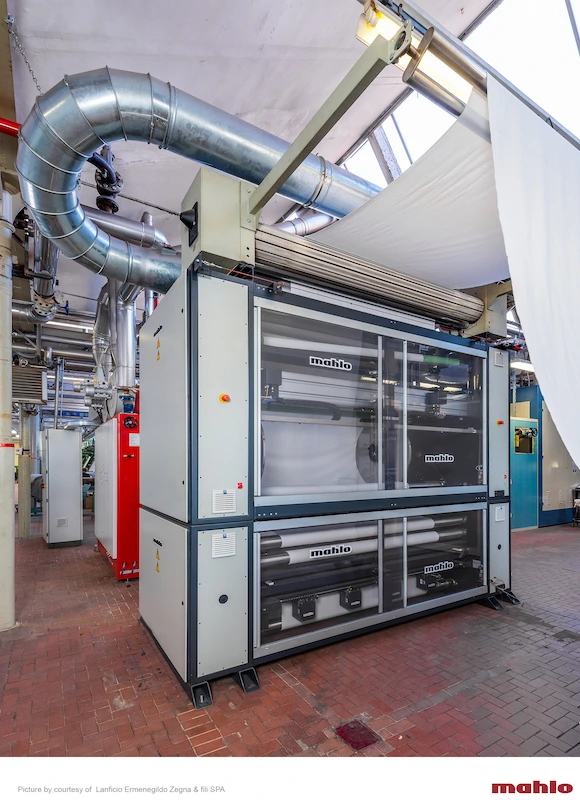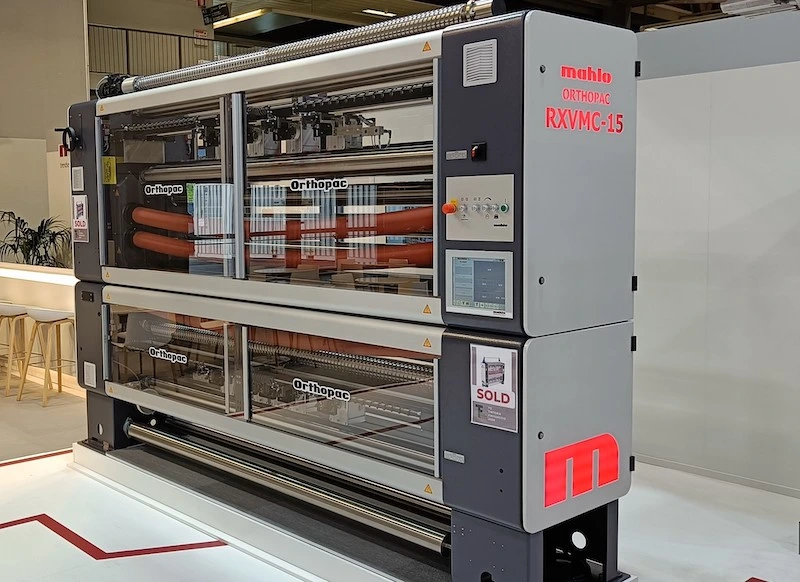In our interview, we explore the pivotal role that European companies and organizations play in advancing the textile sector in the Middle East and Africa. With Rainer Mestermann, CEO of Mahlo, we delve into the multifaceted landscape of these regions, acknowledging their diverse political, social, and economic systems. Against this backdrop, we uncover how European entities leverage their expertise, strategic vision, and financial resources to spearhead development initiatives tailored to specific countries.
Furthermore, we examine the supportive role of European governments in laying the groundwork for textile sector growth across the Middle East and Africa. Additionally, we assess the immense potential of these regions in the textile industry, driven by factors such as population demographics and increasing economic prosperity.
Lastly, Thomas Höpfl, Head of Sales at Mahlo, shares insights into the innovative solutions and suggestions offered by the company. With a focus on quality control and process optimization, Mahlo’s advanced technologies empower textile manufacturers to navigate challenges, enhance efficiency, and achieve sustainable production practices in an evolving market landscape.
What roles can European companies and organizations play in fostering the development of the textile sector in the Middle East and Africa?
Rainer Mestermann (CEO Of Mahlo): The Middle East and Africa are huge and inhomogeneous parts of the world with a large variety of political, social and economical systems. For this reason, there cannot be a common approach to develop the textile sectors in all these countries.
European companies and organizations being active in the textile industry can offer substantial knowledge and experience combined with a long term strategic interest and strong financial backing in order to initiate dedicated development projects in selected countries.
How do European governments support the development of the textile sector in the Middle East and Africa?
Rainer Mestermann (CEO Of Mahlo): European governments can utilize their political network in Middle East and Africa to initiate prepare the basis for developments in the textile sector.
How would you assess the potential of African and Middle Eastern regions in the textile sector?
The Middle East and Africa have a large population available to work in the labour-intensive textile sector as foundation for local textile production. Increasing economic wealth will drive private expenditure in consumer-goods like textiles.
What solutions and suggestions does Mahlo offer?
Thomas Höpfl (Head of Sales of Mahlo): Against the backdrop of the extreme rise in energy prices, online quality control in textile production processes is suddenly more important than ever before. Uncertainty in the market forces manufacturing companies to increase the flexibility and efficiency of their production and to minimize manufacturing costs by reducing the input of resources.
Leading industrial companies are thinking ahead, producing in a sustainable way before they are forced to, and introduce automated processes and high-tech networked devices to perform live data analysis.
In the textile industry, the name Mahlo stands since time immemorial for high-quality automatic weft straighteners and process control systems. Our recipe for success is almost 80 years of experience combined with the latest technological developments.
For many of our customers, quality, energy savings and return on investment play a major role. Our aim is to combine all three points in our systems and thus optimise our customers’ production processes. One of the focal points is therefore the correction of distortions in woven and in knitted fabrics. The latest Mahlo weft straighteners Orthopac RVMC-15, Orthopac RXVMC-20, Orthomax RFMB-15 eliminate distortions in textile webs with extreme precision.
In the new straightening concept RXVMC-20, particular attention was paid to the straightening mechanism and its interaction with the analysing electronics of the scanning head system. The control concept is also new. A scanner group at the straightener infeed recognises distortions before they reach the correction rollers. This means that the rollers are brought directly into position and the fabric is corrected from the very first centimetre.
A scanning head group at the outfeed also recognises possible residual distortion, which is corrected on the second straightening module. This enables an even more precise and faster response when it comes to reacting to rapidly changing distortions. The Orthopac RXVMC therefore shows its full strength when straightening knitted fabrics and warp-sensitive fabrics.
The modular process control system Optipac VMC-15 also contributes to high-quality textile production and finishing by controlling the most important parameters during a finishing process, such as web temperature, dwell time, residual moisture, exhaust humidity and density of weft yarns and stitch rows.
The Optipac VMC-15 uses sensors to measure the parameters and compares it with the target value stored in the recipe data management system. The detected deviations from the target values are used to regulate the possible actuators on the stenter frame fully automatically.
Digital environment
Industry 4.0 remains a major topic, because the best measured data is useless if it cannot be utilised. Mahlo has continuously developed its digital environment mSmart. Our systems generate data that the customer can use immediately to control goods online.
At the same time, all measured values are saved in our mLog enhanced data management system and can be retrieved at any time. This historical data can be used to optimise processes and minimise weak points in the process.





















